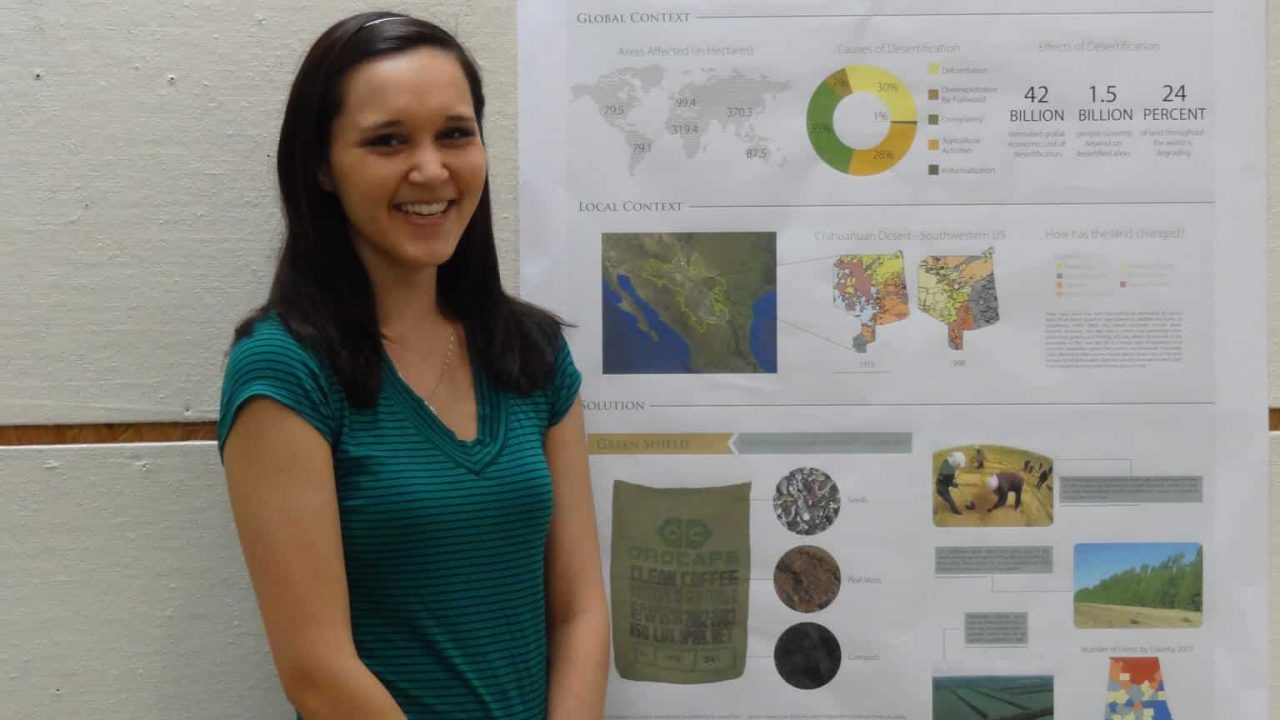Environmental Design Student wins First Place in Research Week Poster Competition

Meagan Winchester, a senior in Environmental Design from Tampa, Florida, won first place for her poster presentation in the Research and Creative Scholarship in Design, Arts and Humanities category in Research Week’s Undergraduate Research and Creative Scholarship Symposium. Her poster, The Issues of Desertification and Food Production, presented her research on the topic of desertification and its effects throughout the world and the product that she designed to help repair land that was not previously desert but had become so because of human activities. Posters presentations were judged on quality of content, conclusions, visual material, presentation, originality, and significant to discipline.
Meagan’s developed her project in fall semester’s ENVD 4010, Elements of Design Thinking and Communication, working under the direction of Magdalena Garmaz, program chair of Environmental Design. Meagan says that she chose the topic because she thinks everyone should be more conscious of the environment around us and our effects on it. “People do not usually notice something like desertification and tend to ignore topics like this because they do not affect us directly, but they do,” Meagan explains. “If we do not have arable land on which to plant crops, then food production dwindles. I think it’s important for people to see how big of an issue desertification really is and why it matters.”
CADC’s multi-disciplinary Environmental Design program focuses on national/global environmental design issues such as this and teaches design thinking skills that provide economical, sustainable and meaningful solutions. Meagan came to Auburn specifically for CADC’s Environmental Design program. She says, “Environmental Design allows you to look into a multitude of topics because it’s all about paying attention to the world around you, the environment. We design products and systems to not only better humans, but also to better the environment and create a more sustainable world for future generations.”
For more information about Environmental Design, click here.